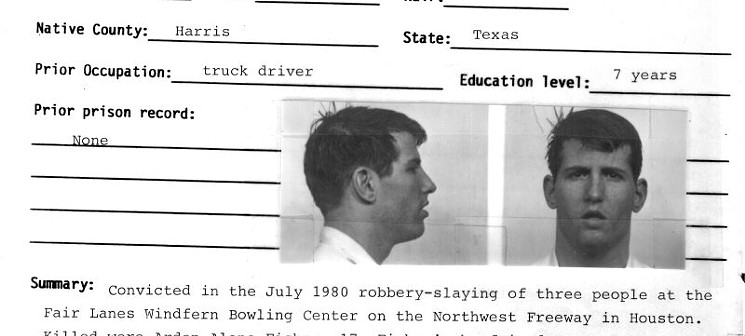Texas Inmate Dies on Death Row Despite Indicators of His Innocence
04.26.16 By Andrew Z. Giacalone
A Texas death row inmate widely thought to be innocent of the crime for which he was convicted has died in prison just three days before a hearing may have cleared his name, the Houston Press has confirmed.
Max Soffar passed away on Sunday at the age of 60 after a battle with liver cancer; he had spent the past 35 years on death row after he reportedly confessed falsely to the 1980 execution-style shooting of three employees at a Houston-area bowling alley.
According to the Houston Press, the U.S. Court of Appeals for the Fifth Circuit had recently agreed to hear his case in what may have been “one of the last chances he would have had at an exoneration.” The court was scheduled to hear oral arguments tomorrow.
In a press release marking Soffar’s passing, Senior Staff Attorney with the ACLU’s Capital Punishment Project, Brian Stull, argued that Soffar’s treatment at the hands of the criminal justice system had been a “disgrace.”
“Max was 24 when he succumbed to extreme pressure by police and confessed to crimes he didn’t commit,” declared Stull. “That confession should never have held up in court, yet it sent Max to death row, where he spent the rest of his life.”
Soffar was represented by the law firm Kirkland Ellis and the ACLU, which long advocated on Soffar’s behalf, pushed his case through the appeals process and urged the Texas Board of Pardons and Paroles for clemency. Most recently, the ACLU called for Soffar to be allowed to return home to his wife where he could die “privately and peacefully” instead of enduring “the horrors of terminal cancer under guards’ constant watch,” according to the organization’s press statement.
In its account of the 1980 case, the Houston Press suggests that Soffar had characteristics that made him vulnerable to falsely confessing. A seventh-grade drop-out who had been addicted to drugs his whole life, Soffar had also been born with liver and brain damage at birth because of fetal alcohol syndrome.
When interrogated by police about the events that transpired in the Houston bowling alley, his account “in no way synced with the actual crime scene.” Nevertheless, the outlet adds, “police were able to pressure Soffar into changing his story several times—from never even being present and only waiting in the getaway car, to only witnessing the murders, then, finally, to being forced by his accomplice to shoot people.” During his trial, it would be this twisted confession that would convince jurors to convict him and send him to death row.
In a 2015 open letter urging Texas Governor Rick Perry to intervene and allow Soffar to die at home, Innocence Project Co-Founder and Co-Director Barry Scheck similarly observed that Soffar’s case bore all the hallmarks of false confession.
“The three days of interrogation weren’t recorded. No other evidence inculpates him—no fingerprints, no witness identification and no forensic evidence,” wrote Scheck, adding that Soffar’s case, like so many others he has seen during his years with the Innocence Project, could have benefitted from the mandatory videotaping of the interrogation.
“The lesson we should learn is that the practices leading to wrongful convictions—including coercive and manipulative interrogations—occur throughout the criminal justice system,” he concluded.
“And they occur whether or not DNA evidence exists that proves innocence.”
Leave a Reply
Thank you for visiting us. You can learn more about how we consider cases here. Please avoid sharing any personal information in the comments below and join us in making this a hate-speech free and safe space for everyone.
April 28, 2016 at 3:26 pm
April 27, 2016 at 3:49 pm
What a shame….This things should never happen…..

It’s corruption everywhere. And its sad! I’ve seen it happen way to many times here in Virginia. Everything is all about the conviction. I have a family member being mistreated in the Virginia Department of Corrections system right now that I’m trying to figure out how to get someone to listen to my/his situation, in which he got the short end of the stick and is still getting the short end of the stick. It’s hard not to be able to do anything because of a lack of funds. The state of Virginia should be ashamed of themselves for being able to charge a 17 yr. old, who basically had no juvenile record, as an adult and give him 64 YEARS IN PRISON! If someone could give me some advice it would be appreciated.